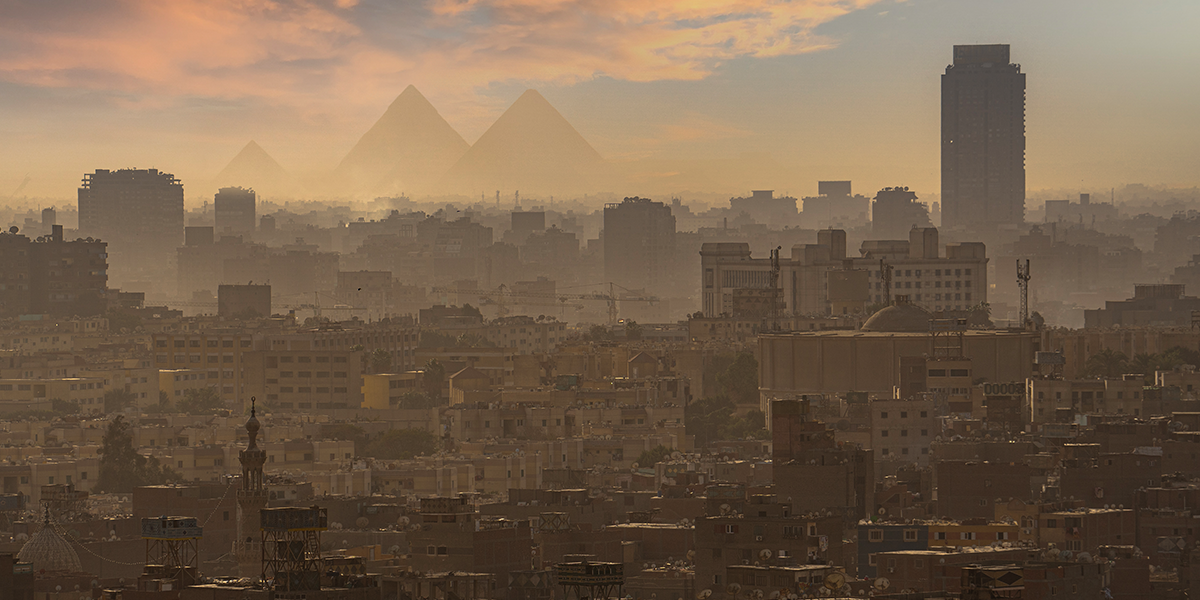
No other civilization in history has built monuments as enduring as ancient Egypt’s pyramids. If they hope to return Egypt to anything like its former grandeur, the country’s contemporary leaders also need to get building — albeit on less tangible structures.
For the first time in years, they have ample resources to to stabilize the Egyptian economy, thanks to a recent influx of financing. After the back-to-back shocks of the COVID pandemic, the Ukraine war and the Gaza crisis pushed up import prices and crushed revenue streams, Egyptian leaders seemed helpless to reverse deepening cycles of domestic inflation and external debt. Then in February, Abu Dhabi sovereign wealth fund ADQ announced a $35bn bailout under the guise of tourism investment. Major rescue packages from the IMF, World Bank and European Union followed in March.
All told, Egypt collected nearly $60bn in just a few weeks, seemingly escaping its previously dire financial situation. Investors soon wondered: How will they spend this new windfall?
President Abdel Fattah el-Sisi is first in line to answer that question. In power since 2014, he was sworn in earlier this month for his third term.
There’s good reason to believe that Sisi will fritter away Egypt’s windfall on pet projects. His favorite is the New Administrative Capital, the $58bn boondoggle in the desert that has come to epitomize El-Sisi’s pharaonic ambitions.
But El-Sisi has also made a few smart early investments with Egypt’s cash influx, such as raising the minimum wage to blunt — however insufficiently — the effects of continuing inflation on citizens. He has also established an accelerated schedule for paying the billions in arrears the state owes to foreign investors and contractors.
But there isn’t yet any indication that Sisi plans to invest Egypt’s resources in constructing a new, more solid economic foundation for the country — one that would prevent it from needing yet another round of bailouts in a few years.
He has ample reason to tackle that challenge. Focus on Egypt’s numerous corporate success stories often obscures the fact that the wider economy has deep structural problems. Most importantly, the security establishment ± where Sisi made his career before entering politics — dominates the economy, crowding out more productive private enterprises while not paying taxes. This, along with waste and corruption, limits the government’s ability to provide public services. It also helps keep the state’s finances perennially underwater, necessitating regular bailouts from abroad.
Egypt still owes billions to international lenders and debt servicing is expected to devour two-thirds of the state budget this year. Among the conditions for the latest IMF rescue package, Sisi’s government agreed to a wave of privatizations but has yet to follow through.
Besides funds, El-Sisi also has plenty of manpower at his disposal. But he has tended to view the country’s 105mn citizens as more a burden than a blessing, lamenting population growth as a drag on the state budget rather than a potential source of productive activity.
By contrast, one resource in short supply is energy. Production has recently plummeted at Egypt’s champion Zohr gas field, and leaders have struggled to boost investment and production in other upstream projects. Grand renewables projects announced in recent years have also been slow to get off the ground. Meanwhile, domestic energy consumption has grown over 15% since Sisi took office.
All this has recently pushed the country from net energy exporter to importer status — the latest challenge to leaders’ ability to spur growth.
Investors with a stake in Egypt’s future should keep a close eye on Sisi’s short-term choices on the privatization of state-run firms while also monitoring the state’s medium-term actions to develop its most important inputs, people and energy.
Africa is one of the fastest growing destinations for energy & natural resources, mining and renewable energy investment. Horizon Engage supports investors and operators assessing opportunities in these markets across the continent and around the world.
Join the Horizon Engage community to follow our latest public insights.
If you are interested in learning more about opportunities in Africa today, schedule a quick introductory call with our team.
About Horizon Engage
Horizon Engage provides country-level analysis on political, social and environmental issues that impact the investment climate for foreign direct investors. We’re changing the game for our clients by merging tech and geopolitical expertise in a whole new way. Let us be your eyes and ears so you can make decisions with confidence. Learn what we do.
